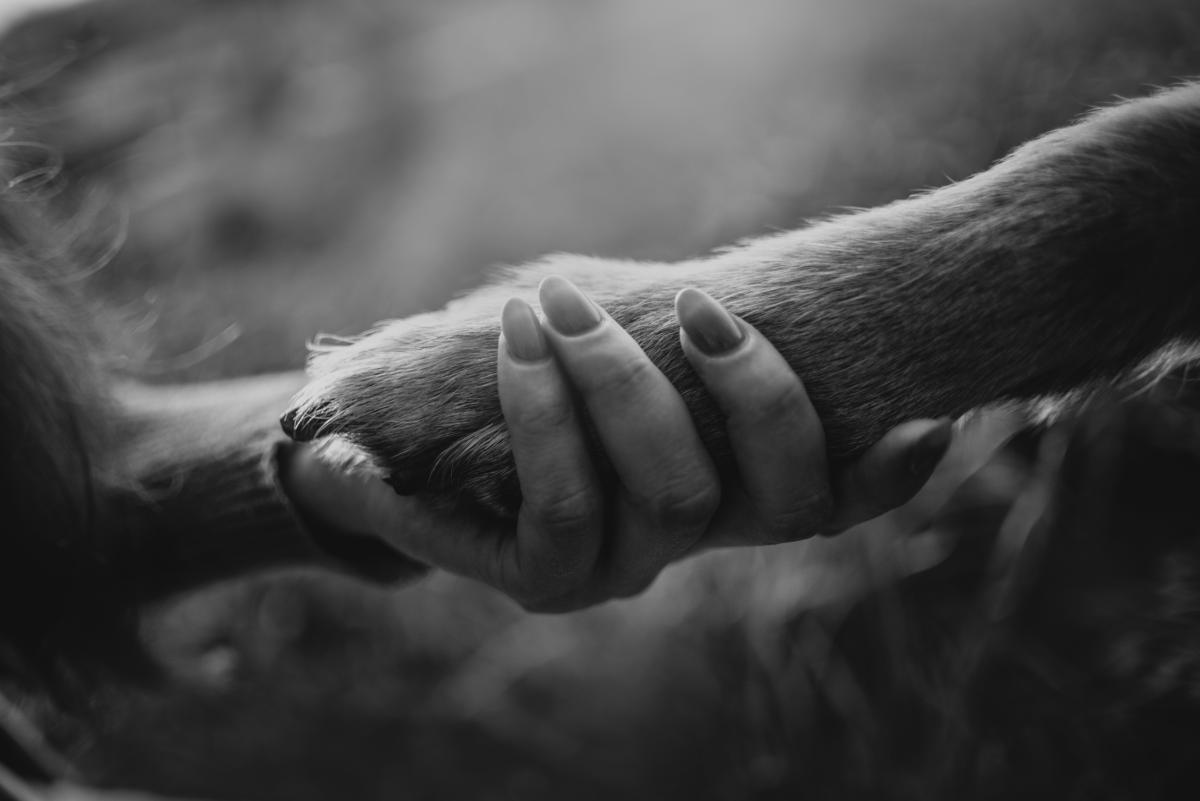
By Sarah Bernardi MSW RSW
Veterinary Social Worker at the Ontario Veterinary College
 When a friend or family member experiences the death of a pet they may grieve deeply. This type of loss is often considered a disenfranchised grief. This is a term which describes a grief that is not generally acknowledged by our larger society and may cause one to feel like they must justify or hide their feelings.
When a friend or family member experiences the death of a pet they may grieve deeply. This type of loss is often considered a disenfranchised grief. This is a term which describes a grief that is not generally acknowledged by our larger society and may cause one to feel like they must justify or hide their feelings.
When someone is experiencing the loss of their beloved companion, you may want to show your support and let them know you are thinking of them. However, finding the right words can be difficult. Today I’m sharing how you can support your loved ones and help honour the memory of their pet.
To demonstrate your support and sympathy, here are three helpful tips to remember:
 1. Empathize
1. Empathize
As Brene Brown says, “Empathy is connecting with people so we know we’re not alone when we’re in struggle.” Empathizing with someone doesn’t mean we have to “fix” or “solve” their grief, rather we acknowledge that grief is there for a reason – it comes from a place of deep love and loss.
Below are some ways you may express empathy:
- “I am so sorry that you lost _____. It is devastating to lose such a special companion.”
- “What would be helpful for you through this process?” or “I am here to listen, how can I check in with you in a way that would be helpful?” When we are unsure what a person needs, the best solution is to ask.
- Silence—being present with the person and allowing their feelings to exist.
 2. Normalize
2. Normalize
A person may express feeling “crazy” or “silly” for being so upset by the death of their pet. As a result, they may not share their authentic feelings for fear of being a “burden” or being “judged” by those around them.
Here are some ways you can let them know you will provide a space without judgment:
- “___was an important part of your life and family; it is normal to feel this way.”
- “Every decision you made was made with great love and care.” Pet owners will often have to make tough decisions around their companion’s treatment and euthanasia, sometimes blaming themselves for the outcome. In these situations, you may remind them that decisions were made with the pet’s best interests in mind.
- “When I went through a similar situation, I struggled too.” If you have been through a relatable experience, you may find it appropriate to share your own story. It may help the person grieving recognize they are not alone.
 3. Educate
3. Educate
There is a great quote that says, “grief is not an event, it is a journey.” As a grief-avoidant society, sometimes people feel like there is little guidance around death and dying. The grief experience is deeply personal, and the implication that there is a “normal” way to grieve is harmful and isolating to those going through it. Grief is rarely linear, predictable and timely – rather it may feel more circular, and healing happens at an individual’s own pace.
Here are some ways you may offer perspective:
- “ We don’t just get over a loss, we will always miss our loved ones.”
- “Grief can feel like a roller coaster, you may have ups and downs.”
- “Your feelings are normal, they are there for a reason – none of them are wrong or bad”. It is okay to feel a variety of emotions such as anger or frustration, for many of us this is part of the process.
- “Euthanasia is a peaceful way to end our pet’s pain and say goodbye.” Not everyone is familiar with euthanasia, and sometimes owners will express that they feel like they “killed” their pet. Here, it is important to enlist the help of the veterinarian to explain what euthanasia is and to answer questions. Euthanasia exists to offer our companions a peaceful death, it is not the euthanasia that causes pain and discomfort.
 When we can support grieving owners in this way, we offer something so important: validation. Validating that this is a significant loss demonstrates comfort, compassion and understanding to those who have lost their beloved companions.
When we can support grieving owners in this way, we offer something so important: validation. Validating that this is a significant loss demonstrates comfort, compassion and understanding to those who have lost their beloved companions.
Read Sarah's personal story of pet loss, Saying Goodbye: Sparka's Story.
Did you know? You can honour the life of a pet who has died by making a memorial donation to OVC Pet Trust. Give online today.
Visit our website for additional pet loss support resources.


